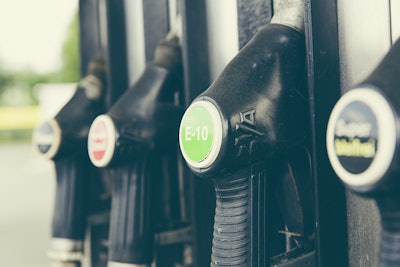
As the White House met last week with executives from the oil and gas industry seeking help with high fuel prices, the National Corn Growers Association (NCGA) reminded administration officials that corn growers offer an immediate solution for lowering fuel prices.
NCGA issued a response on social media, saying: “@WhiteHouse Trying to cut gas prices? How about blending more biofuels – homegrown ethanol costs less than gasoline, and even the small step of choosing a 15% ethanol blend at the pump today saves drivers 10 cents or more per gallon while cutting carbon emissions too.”
This latest action is part of a larger campaign by NCGA to demonstrate the benefits of ethanol to policymakers. When it comes to fuel price concerns, ethanol currently costs less per gallon than gasoline, so blending more ethanol lowers fuel prices while also reducing greenhouse gas emissions.
NCGA has been working closely with Washington policymakers, reminding them that they can address these issues by:
- Ensuring consumers continue to have full market access to lower-cost and lower-emission 15% ethanol blends. Simply choosing a 15% ethanol blend at the pump today saves drivers up to 10 cents per gallon while cutting carbon emissions too. Increasing ethanol blending from 10% to 15% would lower transportation GHG emissions by 17.6 million metric tons per year, the equivalent of removing 3.8 million vehicles from the road.
- Issuing timely and strong renewable fuel blending requirements under the Renewable Fuel Standard (RFS). The delayed 2022 RFS volume rule is needed now to support renewable fuel blending and replace additional expensive petroleum products with lower-priced and cleaner biofuels.
- Ensuring policy incentives, pathways and infrastructure support higher blends of ethanol. This includes using the pending revised vehicle standards rule to equitably incentivize low-emission flex-fuel vehicles that run on E85, which currently costs up to 20% less per gallon than gasoline. We should also take full advantage of ethanol’s clean octane value by increasing fuel octane standards and removing barriers to mid-level ethanol blends – such as through the Next Generation Fuels Act – to reduce emissions and improve fuel efficiency to save consumers money. Finally, there is also an opportunity to continue investing in higher ethanol blends deployment through infrastructure funding.

















